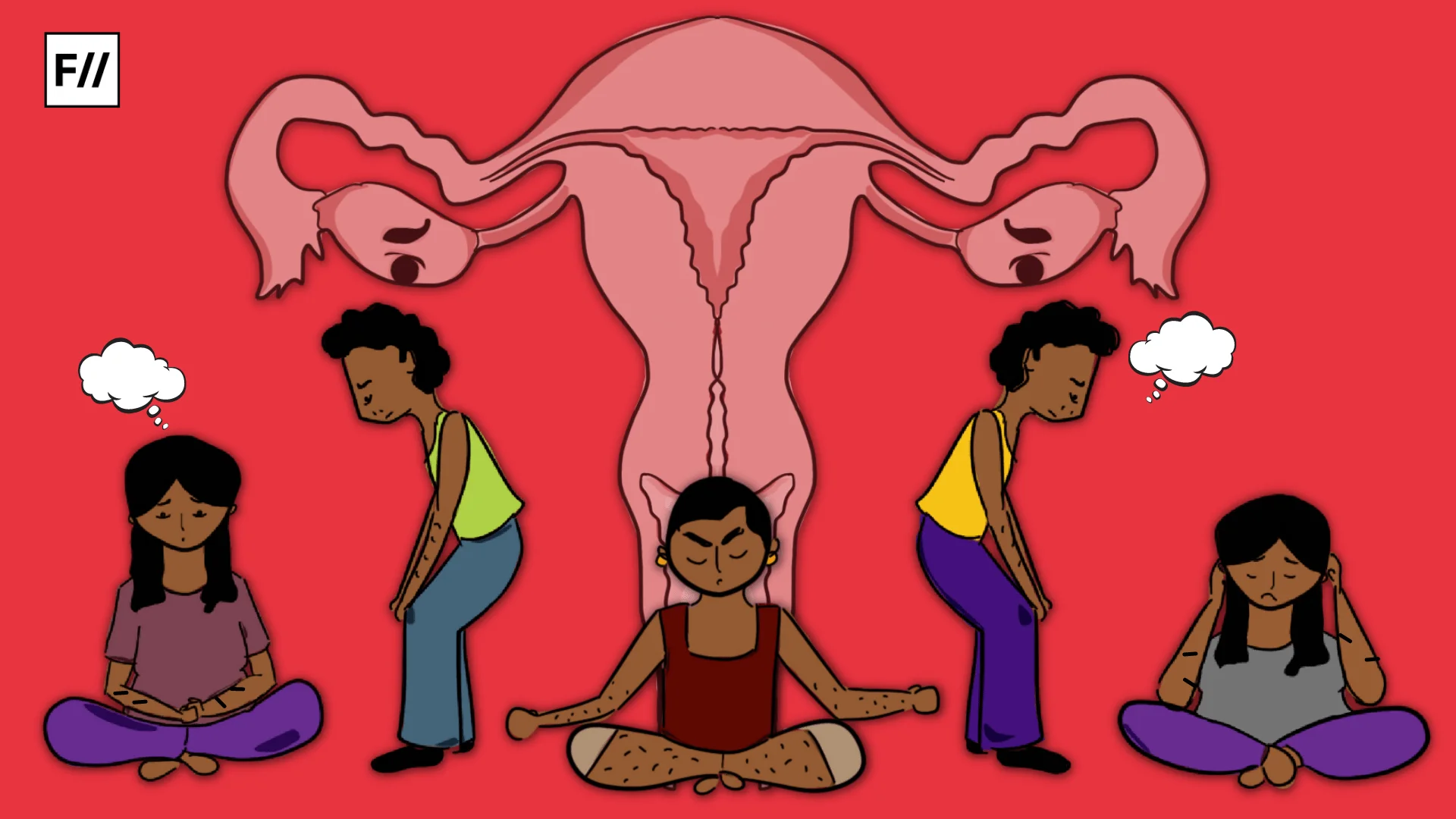Editor’s Note: FII’s #MoodOfTheMonth for August 2022 is Gender and STEM. We invite submissions on the many layers of this theme throughout the month. If you’d like to contribute, kindly refer to our submission guidelines and email your articles to sukanya@feminisminindia.com
Period tracking applications have become popular among menstruating individuals who wish to keep track of their cycle, ovulation, and other period-related information. Individuals prefer to track their menstrual cycle for various reasons – to plan and prepare their schedules around travel, and sexual activity, or to just have an idea about their cycle and be mentally prepared around the predicted dates the period is expected to arrive.
Individuals are to enter information such as past period dates and duration, and symptoms such as cramps, headaches, and mood swings if any, into the application to get approximate predictions regarding the dates of the next cycle. Upon entering such information, individuals are also made aware of the days they are ovulating or have low chances for pregnancy allowing them to plan their activities accordingly.
These applications upon paid subscriptions also offer additional insights into nutritional, fitness, and mental health support. They also aid in providing reproductive health advice depending on the details entered by users of the application, such as delayed periods, and irregular cycles, and provide medical professional assistance as well.
/cdn.vox-cdn.com/uploads/chorus_image/image/68663381/Main_Screen_2.0.jpg)
While these applications provide several benefits to menstruators and allow them to prepare in advance for their period, even with the free mode, there have been questions raised about the accuracy, privacy claims, and in some instances, accessibility. Period tracking applications are believed to fall under the rising femtech market, which caters to providing technological and added services centered around women and their overall well-being.
Within an industry, largely male-dominated and catering predominantly to men, the rise of FemTech allows for women’s issues to attain prominence and attention. The industry offers a wide range of digital services and products specifically for women such as wearable- watches and other monitoring and accessorising devices, mobile applications, and hygiene products. There are predictions that the FemTech market would be worth almost 50 million dollars by 2025-26.
With data selling taking place casually, and with the State interfering with private information as a means of conducting surveillance and controlling individuals, users are becoming wearier about their presence on the internet and especially on period tracking applications. While some applications did assure its users by introducing an incognito or anonymous mode where personal information of users such as their name and other details are hidden, the protection and privacy is easy to breakthrough and tracking individuals even if they are using the application through the anonymous mode is not a difficult feat
Period tracking applications are important contributors to the market growth of the Femtech industry. By submitting information, users can access insights as provided by the application. However, this information is also believed to be sold to brands and organisations as a means of further enabling the growth of the larger Femtech industry.
By selling user information to brands, users are convinced by brands to invest in their products and reinstate the consumerist cycle of purchase and consumption. Several users and personal experiences confirm that users of period-tracking applications find themselves stifled by suggested advertisements from menstrual hygiene companies while on other social media platforms.
Some severe disadvantage of the privacy breach is also that applications sell data to organisations that use the data during the employee selection process in an interview. More dangerous repercussions of the data selling by period tracking applications have been discussed in the context of the recent news around the reversal of the Roe versus Wade judgment by the Supreme court of the United States, which overturned abortion rights.
The judgment denies most abortions and due to the federal form of governance, while some states in the United States of America opted for legal and safe abortion practices to take place within the boundaries of the state, shockingly, the majority of the states in the country sided with the judgment. The judgment was critiqued by feminist groups across the globe as being a dangerous ruling impeding women’s rights and safety.
Also read: Technology And Reproductive Choices: Is Egg Freezing As Feminist As We Believe It To Be?

In a society where women’s issues and needs are often overlooked and more so within the technology industry which has predominantly served the male audience, the Femtech market is an important breakthrough in addressing and emphasising key issues. However, it is disheartening to note how instruments of aid and assistance can be used against individuals as a means of exposing and endangering their identity
It was also pointed out that the ruling has paved the way for illegal and unsafe abortions by de-legalising them. Amidst all this, the concern raised by users of period tracking applications is regarding their information being leaked, thereby risking those who are pregnant or opting for an abortion. It was revealed that social media platforms such as Facebook sell the personal data of users to anti-abortion agencies and censor abortion-related information.
With data selling taking place casually, and with the State interfering with private information as a means of conducting surveillance and controlling individuals, users are becoming wearier about their presence on the internet and especially on period tracking applications. While some applications did assure their users by introducing an incognito or anonymous mode where personal information of users such as their name and other details are hidden, the protection and privacy is easy to breakthrough and tracking individuals even if they are using the application through the anonymous mode is not a difficult feat.

Period tracking applications are very convenient mechanisms and important technologies which acknowledge topics of taboo such as menstrual health, reproductive health, and mental health, and most importantly, assist with the same. Technology has advanced so much that it aids individuals in their day-to-day lives.
In a society where women’s issues and needs are often overlooked and more so within the technology industry which has predominantly served the male audience, the Femtech market is an important breakthrough in addressing and emphasising key issues. However, it is disheartening to note how instruments of aid and assistance can be used against individuals as a means of exposing and endangering their identities.
This takes us back to square one. We must address the safety of applications for individuals which require them to share sensitive information. Individuals also often face the guilt of being users on these platforms as they are believed to “put themselves” out there for scrutiny, while the platforms are the ones who are to be held accountable and responsible for the safety of the users.
Technologies must truly strive towards genuinely being inclusive to all identities rather than merely advertising diversity and inclusion for profits. This is a wake-up call for the Femtech industry to reconfigure and understand how best to provide service to their users while keeping in mind the privacy of the users of utmost importance.
Also read: Menstrual Migraine: Unpacking The Basics Of Period Related Hormone Headaches
Featured Image Source: PCMag
About the author(s)
Arundhati Narayan is passionate about research and is




